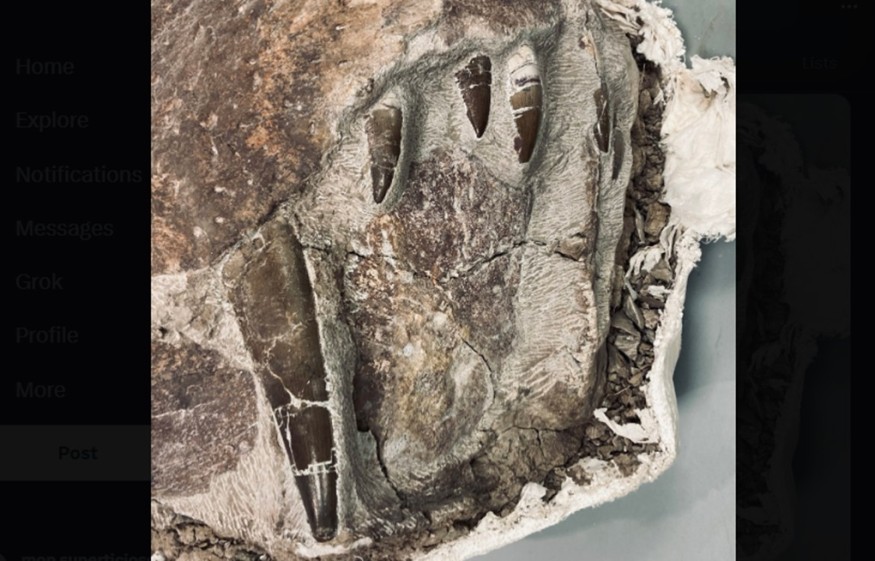
A groundbreaking discovery in Mallorca, Spain, has revealed the fossilized remains of the world's oldest known gorgonopsian, a saber-toothed predator that roamed Earth between 270 and 280 million years ago.
This extinct species is a significant ancestor of modern mammals, providing new insights into the evolution and migration of early life forms on the ancient supercontinent, Pangea.
Mallorca Unearths First Gorgonopsian Fossil from Low Paleolatitude
Gorgonopsians, often described as resembling furless, earless dogs, were apex predators of their time.
These warm-blooded creatures were among the first to develop saber teeth, which helped them dominate their ecosystems.
Unlike mammals today, gorgonopsians laid eggs, highlighting their unique position in the evolutionary transition from reptiles to mammals.
According to PhysOrg, the fossil remains, discovered in the Serra de Tramuntana region of Mallorca, include skull fragments, vertebrae, ribs, and a remarkably preserved leg bone.
Researchers estimate the animal was about one meter long, making it a small to medium-sized predator.
This fossil represents not only the oldest gorgonopsian ever found but also the first discovered in such a low paleolatitude, challenging previous assumptions that these creatures were confined to colder regions like Russia and South Africa.
Fossil Trove in Mallorca Offers Rare Insight into Permian Predator Adaptations
An international team led the excavation from the Institut Català de Paleontologia Miquel Crusafont (ICP) and the Museu Balear de Ciències Naturals.
Over multiple campaigns, they recovered an unprecedented number of fossils, offering a detailed glimpse into the life of this ancient predator.
According to the research team, the site was once a floodplain with seasonal ponds, attracting various animals that formed part of the gorgonopsian's food chain.
Mallorca's location during the Permian period was near the equator, with a monsoonal climate of alternating wet and dry seasons, CourtHouse said.
The discovery underscores the island's exceptional fossil record, which includes ancient species like ammonoids and giant sharks, despite its small size.
This discovery suggests that gorgonopsians may have originated in tropical, equatorial regions before spreading to higher latitudes.
Their efficient locomotion and rudimentary thermoregulation likely gave them a competitive edge after a mass extinction event during the Permian.
The nearly complete leg found in Mallorca shows that these predators moved with a gait intermediate between reptiles and mammals, making them highly effective hunters. Combined with their saber teeth, they were perfectly adapted to thrive in their environments.
© 2025 NatureWorldNews.com All rights reserved. Do not reproduce without permission.





